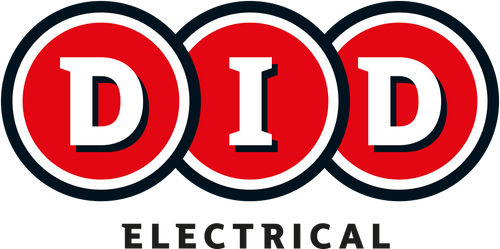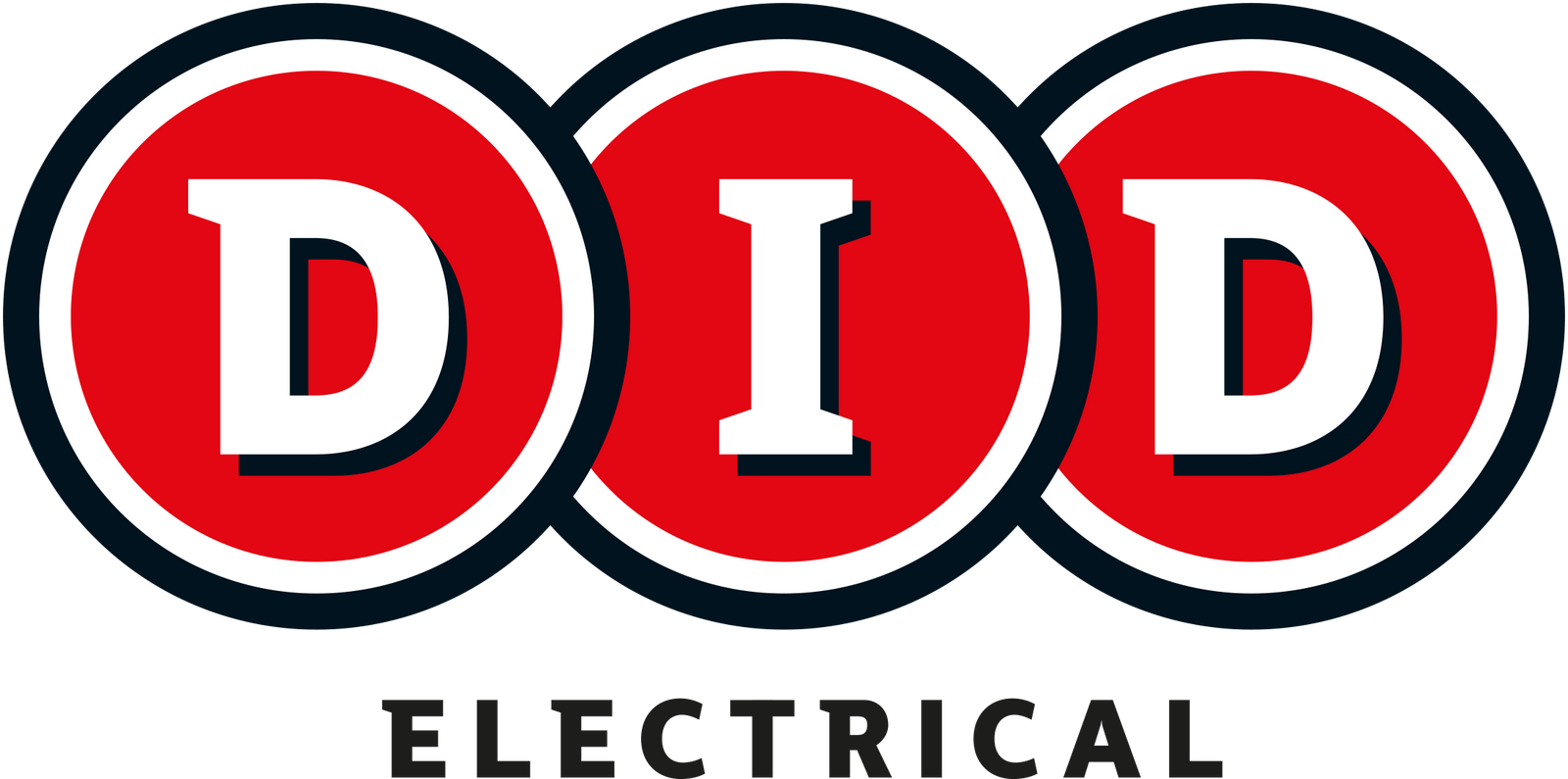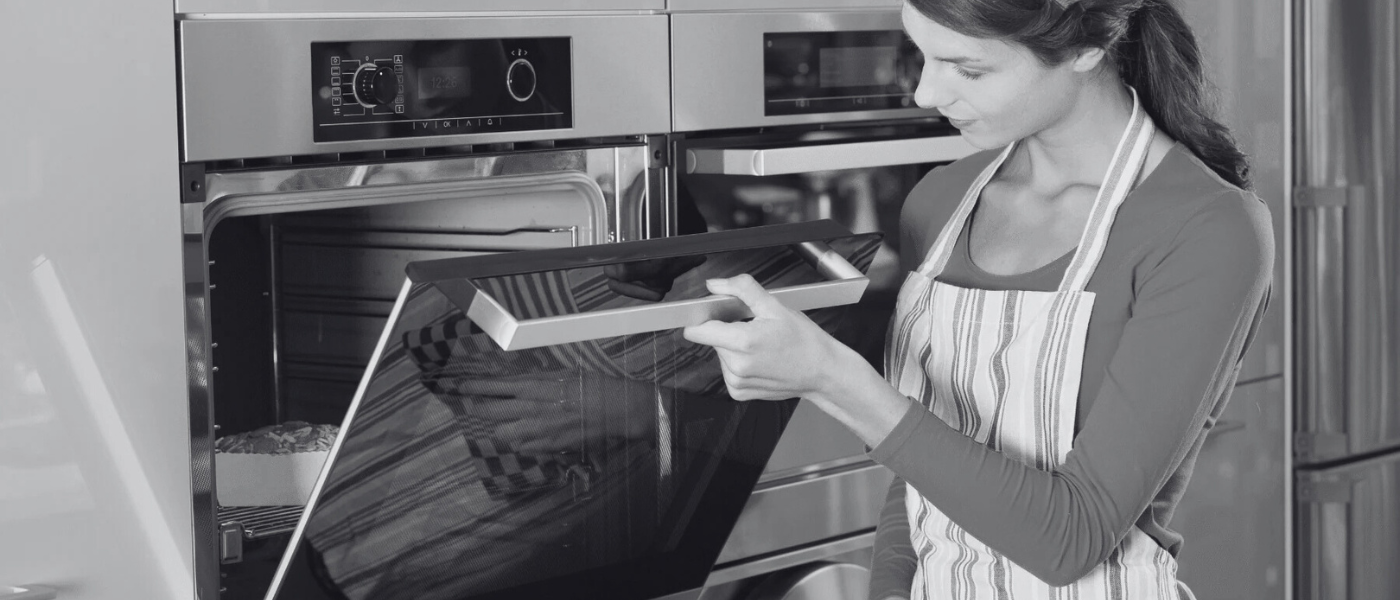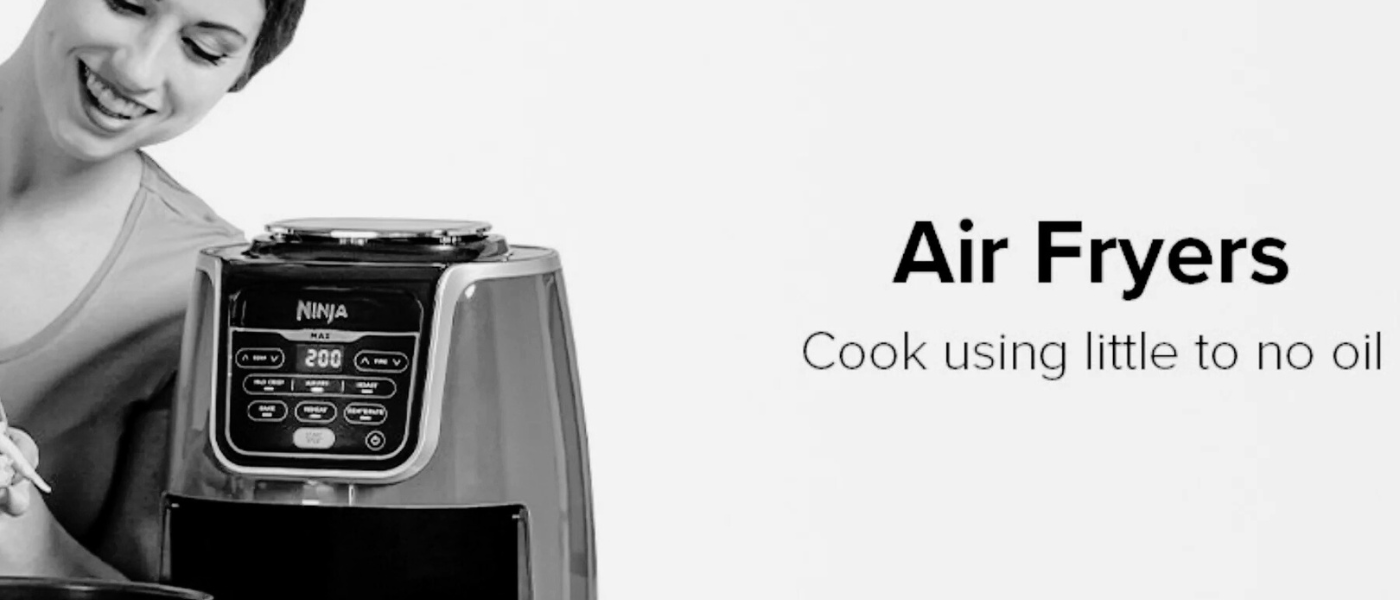It’s a new year, and every time a new year comes about, many of us have resolutions, goals, targets, and dreams we look to meet. One popular resolution many people gravitate towards is trying the vegan diet. This is where the term ‘Veganuary’ comes in. Veganuary is a super popular way to introduce yourself to the vegan lifestyle without fully committing to everything vegan.
Below, we have created a guide to Veganuary, detailing what it is, why you might want to consider it, and, of course, a couple of vegan recipes that you can create using the electrical appliances on offer here at DID.
What is Veganuary?
Veganuary is a month-long challenge where people are encouraged to try a vegan lifestyle. It is a very popular challenge that has turned into somewhat of a fad in recent years. Veganuary began in 2014, and by 2022, there were nearly 450,000 taking part. It is a growing movement, so it is only right that we include a number of exciting vegan recipes that will make Veganuary simple and delicious. Even if the full vegan lifestyle isn't for you, we guarantee we can find you some tasty vegan recipes that will help diversify your weekly meal planning.
3 Reasons why Veganism Might be For You
There are many health benefits attached to going vegan. Here are just 3 of the most prominent reasons we think will help influence you to try veganism. Even if it is just for 4 weeks of the year.
- Eating a vegan diet can help to reduce your risk of certain diseases or illnesses - A variety of scientific studies have pointed to the range of health benefits linked to going vegan. For example, research has found that vegans had higher concentrations of certain antioxidant carotenoids, more omega-3 fatty acids, and lower saturated fat in their systems. Lower levels of each of these have been linked to health benefits in the past. So if you deal with health issues or are hoping to cut back on saturates/fats, then a vegan lifestyle is a good idea. But remember, a poorly planned vegan diet can also be high in unhealthy fats and refined carbohydrates, which can increase the risk of certain health problems. Therefore, it's important to seek the guidance of a healthcare professional or registered dietitian to ensure a balanced and nutritionally adequate vegan diet.
- Prevention of Type 2 Diabetes - Scientific research has again shown a correlation between adopting a vegan diet and lowering blood sugar levels. Eating plant-based foods can reduce your intake of sugars or added sugars and can help to mitigate obesity as well. It's important to remember that type 2 diabetes is a complex condition with multiple causes, and diet is just one of many factors that can impact its development. Other factors such as genetics, physical activity, body weight, and smoking can also play a role. A well-planned vegan diet can be associated with a lower risk of type 2 diabetes, but it's not a guarantee and other factors should also be considered.
- Skin Health - Very few people will say no to the chance at great skin. A diet rich in fruits and vegetables, which are staples of a vegan diet, can provide vitamins C and E, which are important for skin health. Vegan diets may also be high in healthy fats, such as those found in avocados, nuts, and seeds, which can help maintain skin hydration and elasticity.
Whether or not a vegan lifestyle is "good" is subjective and can depend on a variety of factors, including personal beliefs, health considerations, and individual experiences. For some people, a vegan lifestyle is a positive choice for ethical, environmental, or health reasons. A well-planned vegan diet can provide many health benefits, such as a lower risk of heart disease, certain cancers, and type 2 diabetes, and can also have a lower environmental impact compared to diets that include animal products.
However, for others, a vegan lifestyle may not be the best choice for their health, due to a higher risk of certain nutrient deficiencies or difficulty in meeting their nutritional needs. It's important to carefully consider individual needs and consult a healthcare professional and registered dietitian to ensure a balanced and nutritionally adequate diet. Ultimately, the decision to pursue a vegan lifestyle is a personal one, and it's up to each individual to determine what works best for them based on their unique needs and beliefs.
Vegan Recipes
A Vegan Airfryer Recipe: Tofu Popcorn
Even if you are not leading a vegan lifestyle, this vegan tofu popcorn is so delicious that it might just convert you. It's one of our favourite vegan recipes! Here is the recipe and how you can make it for yourself this January.
Ingredients
- 400 grams of firm tofu that has been drained
- 70g of gluten-free flour
- 70g of cornmeal
- 3 tablespoons of yeast
- 2 tablespoons of vegetarian no chicken bouillon
- 1.5 tablespoons of dijon mustard
- 2 teaspoons of garlic and onion powder
- ½ teaspoon of salt
- Pinch of pepper
- 175mls of dairy-free milk (sweetened or unsweetened)
- 200g of panko breadcrumbs
- Vegan Garlic Mayo – Add some fresh garlic or garlic paste to ½ cup of vegan mayonnaise.
Method
Rip up the tofu into small pieces
- Add flour, cornmeal, nutritional yeast, better than bouillon, mustard, garlic, onion, salt, pepper, and milk into a large bowl and mix until combined.
-
It should look like a thick batter.
Place your breadcrumbs in a separate bowl. -
Dip the pieces into the batter, and then the breadcrumbs.
A top tip: Use one hand for the wet mix and one for the dry so that they are not mixed together. -
Cook in the air fryer for 12 mins at 180 degrees.
Check out our range of air fryers here
Oven-Friendly Vegan Recipes: Spinach and Lemon Quinoa Bake
Just because you have gone vegan does not mean you should miss out on delicious bakes. Below we have a stunning spinach and lemon quinoa bake that is both earthy and citrusy. A perfect combo.
Ingredients
- 500mls of vegetable stock
- 120g of uncooked quinoa
- Dash of olive oil
- 2 teaspoons of egg substitute/replacer + 3-4 tablespoons of water to dilute it
- 1 onion peeled and diced thin
- 2 minced garlic cloves
- 1 tbsp fresh thyme leaves (chopped)
- 1 tbsp freshly chopped rosemary
- ¼ teaspoon of chilli flakes (this is optional if you are looking to add a little spice)
- 100g of spinach
- 100g of tofu sour cream
- 2 teaspoons of lemon zest
- Pinch of ground black pepper
- 2 tablespoons of yeast
Method
- If you are using uncooked quinoa, bring both the broth and quinoa to a boil. Lower the heat to the lowest setting and simmer while covered for about 20 minutes or until it is fluffy and the tiny curls stick out from the seeds. (but be careful not to overcook the quinoa).
- Preheat oven to 180 degrees Celsius, coat an 8-by-8-inch glass or ceramic baking dish with olive oil.
- Whisk the egg replacer and water together in a large medium mixing bowl. Set aside.
- Heat 1 tbsp olive oil in a medium pan. Add onion and garlic and sauté until translucent. This should take between 6-8 minutes.
- Add thyme, rosemary, red pepper flakes, spinach, and sauté until just wilted. Remove from the heat and transfer it to the egg mixture.
- Add quinoa, sour cream, lemon zest, pepper, and nutritional yeast to the spinach-onion mixture, and stir until well combined.
- Pour the mixture into the prepared baking dish and place in the oven. Bake for 60 minutes at 180-190 degrees until well set and edges are brown. Let cool slightly before slicing. Serve warm or at room temperature (it’s also good cold with a salad).
If you are looking for a new oven to create a delicious dish, then check out our range of ovens.
A Food Processer-Friendly Vegan Recipe: Vegan Pesto
The main food on the plate does not have to be the star of the show. Sometimes the side dish or dip can be the star, and that is why we have included a delicious pesto below.
Ingredients
- 2 large bunches of basil leaves
- 75g raw cashews
- 50g pine nuts
- 1 garlic clove
- 2 teaspoons of white miso
- 2 teaspoons of lemon juice
- ¼ teaspoon of fine sea salt
- Black pepper
- 65ml olive oil
Method
-
Combine the basil with 1/3 cup cashews and 1 garlic clove in a food blender, and pulse well until everything is broken down.
-
Add 2 teaspoons miso, 2 teaspoons lemon juice, 1/4 teaspoon salt, and a few grinds of pepper. With the motor running, gradually stream in 1/3 cup olive oil and puree until smooth. Taste and adjust the seasonings as you require.
-
Scrape the pesto mixture into a small airtight container. It will keep in the fridge for 2-3 days. You can also freeze it for up to 60-90 days.
Check out our large collection of food processors.
Vegan Recipes FAQs
What is veganism?
Veganism is a lifestyle and dietary choice that seeks to exclude the use of animal products for food, clothing, or any other purpose. This includes avoiding meat, dairy, eggs, honey, and any other animal-derived ingredients.
What food should I eat as a vegan?
- Fruits: Apples, bananas, berries, oranges, mangoes, etc.
- Vegetables: Leafy greens, carrots, bell peppers, tomatoes, squash, etc.
- Whole grains: Oatmeal, brown rice, quinoa, whole grain bread, etc.
- Legumes: Lentils, chickpeas, black beans, kidney beans, etc.
- Nuts and seeds: Almonds, peanuts, sunflower seeds, chia seeds, etc.
- Plant-based protein sources: Tofu, tempeh, seitan, plant-based meat alternatives, etc.
- Dairy alternatives: Almond milk, soy milk, oat milk, etc.
- Healthy fats: Avocado, olive oil, nuts, and seeds.
- Fortified foods: Plant-based milks, breakfast cereals, and nutritional yeast, which are fortified with vitamin B12.
It's important to eat a variety of these foods to ensure a nutritionally adequate vegan diet. You can also include fortified foods or supplements to meet your nutritional needs. Additionally, you should seek the guidance of a healthcare professional or registered dietitian if needed to ensure a balanced and healthy vegan diet.
Is being vegan expensive?
Being vegan can be either expensive or cost-effective, depending on a variety of factors, including the types of foods you choose to eat, where you shop, and your overall approach to eating.
Some plant-based foods, such as whole grains, legumes, selected fruits and vegetables, can be relatively inexpensive and can form the basis of a healthy and cost-effective vegan diet. On the other hand, pre-prepared vegan meals, plant-based meat alternatives, and speciality vegan products can be more expensive.
In general, eating a variety of whole, minimally processed foods, such as fruits and vegetables, whole grains, legumes, and nuts and seeds, can be a cost-effective way to follow a vegan diet. Shopping for sales, buying in bulk, and growing your own fruits and vegetables can also help keep costs down. It's important to remember that a healthy diet, regardless of whether it's vegan or not, should prioritize whole, nutrient-dense foods, rather than highly processed and expensive foods.
What is the difference between vegetarian and vegan diets?
A vegetarian diet is characterized by not eating meat, poultry and fish, but may include dairy, eggs and other animal products. A vegan diet, on the other hand, excludes all animal products, including dairy, eggs, honey, and gelatin. The main difference between the two is the presence of animal products in a vegetarian diet, whereas a vegan diet is entirely plant-based.
Is vegan the healthiest diet?
It is not accurate to say that a vegan diet is inherently the "healthiest" diet. A well-planned vegan diet can provide many health benefits, such as lower risk of heart disease, certain cancers, and type 2 diabetes. However, a poorly planned vegan diet can also lead to nutrient deficiencies if not carefully balanced.
Like any diet, the healthiness of a vegan diet ultimately depends on the individual's food choices, calorie intake, and nutrient balance. It's important to eat a variety of foods and consider nutrient needs, such as protein, iron, calcium, and vitamin B12, which may require fortified foods or supplements.
It's also important to note that different people have different nutritional needs, and what works for one person may not work for another. Consulting a healthcare professional and registered dietitian can help determine the best dietary approach for individual needs and health goals.
Are air fryers good for vegans?
Air fryers are brilliant tools for vegans because they allow them to cook delicious food in different ways. Many vegans will cook tofu or vegetables in their fryer, and the results are incredible.
Can I use aluminium foil in my air fryer?
Absolutely, it is recommended that you use tin foil in your fryer because it prevents excess mess and can also speed up the cooking process because heat is trapped.
What are some common challenges of a vegan diet?
Common challenges of a vegan diet include difficulty finding suitable options when eating out, social pressure from non-vegan friends and family, and ensuring a nutritionally adequate diet.
What are the potential risks of a vegan diet?
A poorly planned vegan diet can be lacking in essential nutrients, such as protein, iron, calcium, and vitamin B12, and can also be high in unhealthy fats and refined carbohydrates. This can increase the risk of certain health problems.
Is being vegan good for your gut health?
A vegan diet can be beneficial for gut health if it is well-planned and nutritionally adequate. A plant-based diet is high in fiber, which promotes the growth of beneficial bacteria in the gut, and helps maintain a healthy gut microbiome. Fiber is found in many plant-based foods, such as fruits, vegetables, whole grains, and legumes. Additionally, some plant-based foods, such as fermented foods, such as tempeh and miso, contain probiotics, which can help improve gut health.
However, a poorly planned vegan diet, lacking in essential nutrients and high in processed foods, can negatively impact gut health and potentially lead to digestive problems.
It's important to ensure a balanced and nutritionally adequate vegan diet by including a variety of plant-based foods, as well as fortified foods or supplements if needed, and seeking the guidance of a healthcare professional or registered dietitian if necessary.
Is Jamie Oliver a vegan?
Jamie Oliver is not necessarily a vegan, but since 2018 he has championed a move towards plant-based foods, championing their health benefits. He has also committed himself to eating far less meat and fish. Whilst he might not be vegan, having such a popular ambassador for food championing vegan causes is good.











